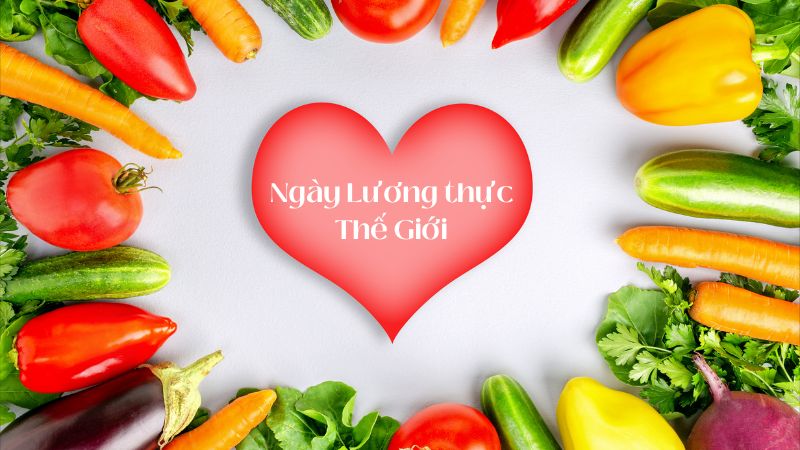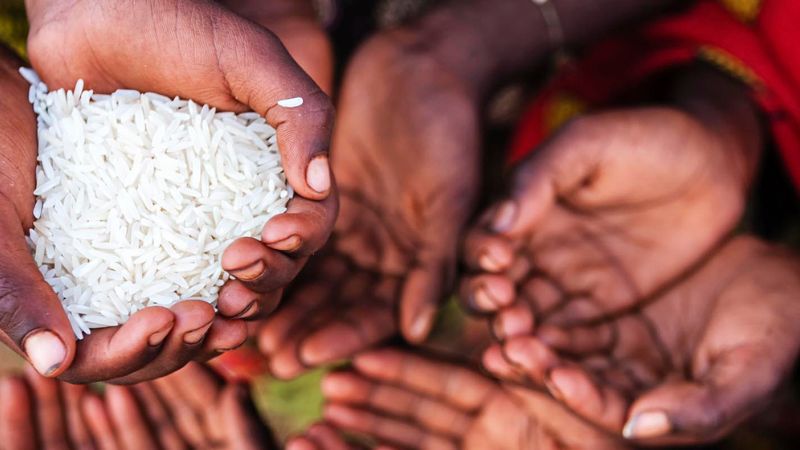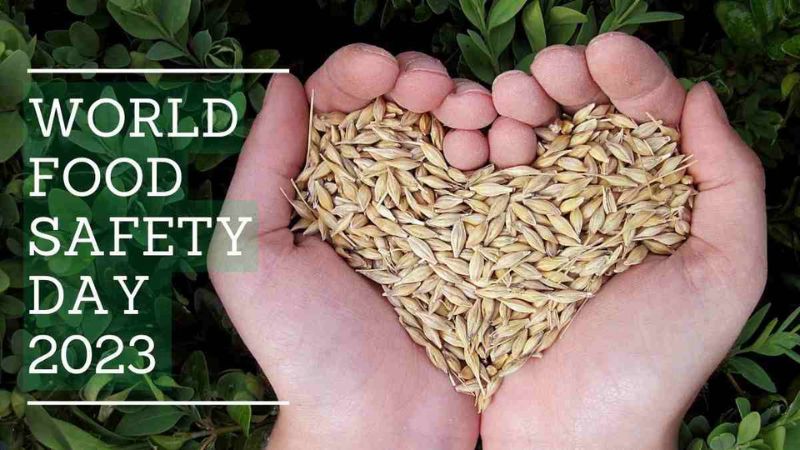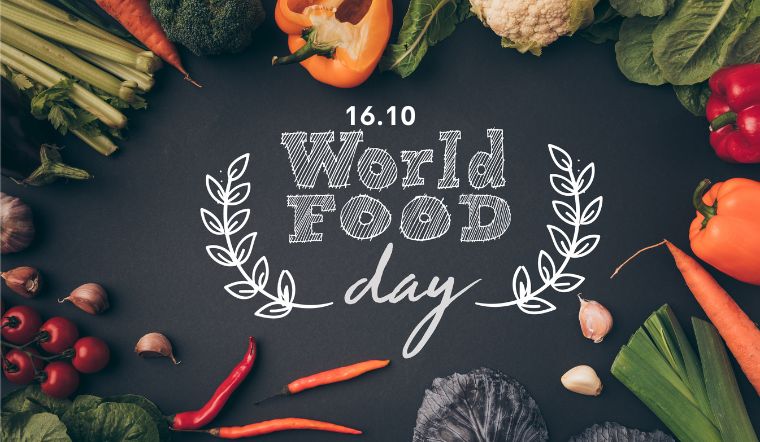World Food Day is an important annual event that aims to raise awareness about global food security and poverty. This article will discuss the origins of this day, its significance, and the notable activities of this event in encouraging the sustainable use of food and agricultural resources.
1 What is World Food Day?
World Food Day is observed annually on October 16th to commemorate the founding of the Food and Agriculture Organization of the United Nations and to focus on global food security and hunger issues. World Food Day is also recognized as World Food Science Day. On this day, organizations such as the World Food Programme and the International Fund for Agricultural Development hold activities related to food and agriculture.
The World Food Programme was awarded the Nobel Peace Prize in 2020 in recognition of its efforts in fighting hunger and contributing to peace in conflict areas. WFP has played a crucial role in preventing the use of hunger as a weapon in wars and conflicts. This recognition highlights the importance of the work WFP is doing to reduce hunger and eradicate hunger in today’s world.
 What is World Food Day?
What is World Food Day?
2 Origins of World Food Day
World Food Day originated from the 20th Conference of the Food and Agriculture Organization of the United Nations in November 1979. The idea was proposed by the Hungarian delegation under the leadership of Dr. Pál Romány, then-Minister of Agriculture and Food of Hungary. Since then, this day has become an annual event celebrated in over 150 countries worldwide.
The main objective of World Food Day is to raise awareness about poverty and encourage the sustainable use of food and agricultural resources. The event also aims to spark discussions and actions related to food security, ensuring that people worldwide have the right to access safe, nutritious, and sufficient food.
 Origins of World Food Day
Origins of World Food Day
3 World Food Day Themes Through the Years
Since 1981, World Food Day has inspired through the selection of a special theme each year, focusing on areas that need action and identifying a common focus.
 World Food Day Themes Through the Years
World Food Day Themes Through the Years
| Year | Theme |
| 1981 | Food comes first |
| 1982 | Food comes first |
| 1983 | World food security and nutrition |
| 1984 | Women in agriculture |
| 1985 | Rural poverty |
| 1986 | Fishermen and fishing communities |
| 1987 | Small farmers |
| 1988 | Rural youth |
| 1989 | Food and the environment |
| 1990 | Food for the future |
| 1991 | Tree crops for life |
| 1992 | Food and nutrition |
| 1993 | Harvesting nature’s diversity |
| 1994 | Water for life |
| 1995 | Food for all |
| 1996 | Fighting hunger and malnutrition |
| 1997 | Investing in food security |
| 1998 | Women feed the world |
| 1999 | Youth against hunger |
| 2000 | A millennium free of hunger |
| 2001 | Fight hunger to reduce poverty |
| 2002 | Water: source of food security |
| 2003 | Working together for an international alliance against hunger |
| 2004 |
Biodiversity for food security |
| 2005 | Agriculture and intercultural dialogue |
| 2006 | Investing in agriculture for food security |
| 2007 | The right to food |
| 2008 | World food security: the challenges of climate change and bioenergy |
| 2009 | Achieving food security in times of crisis |
| 2010 | United against hunger |
| 2011 | Food prices – from crisis to stability |
| 2012 | Agricultural cooperatives – key to feeding the world |
| 2013 | Sustainable food systems for food security and nutrition |
| 2014 | Family farming: feeding the world, caring for the earth |
| 2015 | Social protection and agriculture: breaking the cycle of rural poverty |
| 2016 | Climate is changing. Food and agriculture must too |
| 2017 | Change the future of migration. Invest in food security and rural development |
| 2018 | Our actions are our future. A #ZeroHunger world by 2030 is possible |
| 2019 | Our actions are our future. Healthy diets for a #ZeroHunger world |
| 2020 | Grow, Nourish, Sustain. Together. Our actions are our future |
| 2021 | Our actions are our future. Better production, better nutrition, a better environment, and a better life |
| 2022 | Leave no one behind |
4 Activities on World Food Day
World Food Day is celebrated annually in over 150 countries worldwide. Here are some examples of how World Food Day is organized in some countries in recent years:
United States
World Food Day has become a tradition since 1981. Approximately 450 public and private volunteer organizations sponsor activities related to this day. A typical example is “World Food Day Sunday Dinners,” an event organized by Oxfam America in collaboration with other non-profit sponsors. Notable figures such as Archbishop Desmond Tutu and author Francis Moore Lappe have joined Oxfam in promoting this event. Additionally, the World Food Prize has held the Hunger Summit in Iowa on or near World Food Day since 2007, in conjunction with their annual symposium in Des Moines, Iowa.
 Activities on World Food Day in the United States
Activities on World Food Day in the United States
Europe
In Italy, ministries, universities, research institutes, international agencies, and non-governmental organizations held conferences, exhibitions, and seminars on food. In 2005, the Italian Ministry of Agriculture and Forestry organized a rally focusing on the rights of rural women.
In Germany, the Federal Ministry of Consumer Protection, Food, and Agriculture participated in World Food Day through press conferences.
In Spain, the national television station, along with FAO Goodwill Ambassador and Spanish footballer Raul, broadcasted events related to World Food Day, raising awareness about food security issues.
In the United Kingdom, the UK Food Group actively participated in this commemoration through conferences and public media.
Emerging economies in Eastern Europe, such as Albania, Armenia, Croatia, the Czech Republic, Georgia, Macedonia, Moldova, Serbia, Montenegro, and Slovakia, also organized various activities to commemorate World Food Day.
In Hungary, renowned food experts participated in performances at the Hungarian Agricultural Museum. Representatives of the “Food and Agriculture Organization of the United Nations” in the region presented the World Food Day Medal to Hungarian experts.
Popes John Paul II and Benedict XVI sent annual messages from the Holy See to honor food and agricultural producers and consumers on World Food Day.
 Activities on World Food Day in Europe
Activities on World Food Day in Europe
Africa
Angola held the 4th Forum on Rural Women in 2005 to commemorate World Food Day. This was a significant event to raise awareness about the role of women in food production.
In Burundi, the Second Vice President participated in potato planting, symbolizing food production. This emphasized the importance of agriculture and food production for the country.
The Central African Republic inaugurated a bridge in Boda during World Food Day, contributing to improved transportation and access to the food production area.
In Chad, thousands of people participated in discussions, conferences, and World Food Day activities. These activities included watching plays, films, folk dances, visiting agricultural projects, and agricultural companies.
In Ghana, the Ministry of Food and Agriculture held a conference on food security to raise awareness about this issue.
Namibia launched a campaign to raise awareness about food security through national media.
Egypt organized a workshop on nutrition, focusing on health and community nutrition issues.
Morocco and Tunisia held symposiums and exhibitions on food to raise awareness and exchange views on regional food issues.
 Activities on World Food Day in Africa
Activities on World Food Day in Africa
Asia
In Bangladesh, the government organized a food festival to honor and share the country’s traditional foods.
In 2005, China’s Ministry of Agriculture held a World Food Day event in Qujing City, home to ethnic minorities. The event aimed to create a forum to discuss global food issues and emphasize food’s role in ensuring food security.
The Democratic People’s Republic of Korea held workshops and visited agricultural projects to raise awareness and knowledge about food and agriculture in the community.
In Indonesia, the Ministry of Agriculture held a Food Exhibition in Bandung, West Java. Meanwhile, non-governmental organizations of farmers and fishermen held workshops in Bali to discuss issues related to agriculture in general and food in particular.
In Armenia, the World Food Day event was attended by the Ministry of Agriculture, non-governmental organizations, the National Agricultural University of Armenia, and some international organizations.
In Afghanistan, World Food Day was celebrated with the participation of representatives from government ministries, embassies, UN agencies, international financial institutions, and national and international non-governmental organizations, along with FAO staff.
In Cyprus, World Food Day events were held in primary and secondary schools. Through teaching and explaining the significance of World Food Day, teachers aimed to raise students’ awareness of the importance of food.
In Pakistan, an association called MAPS (Mentor Amiable Professional Society) organized a special event for World Food Day. They held workshops


































